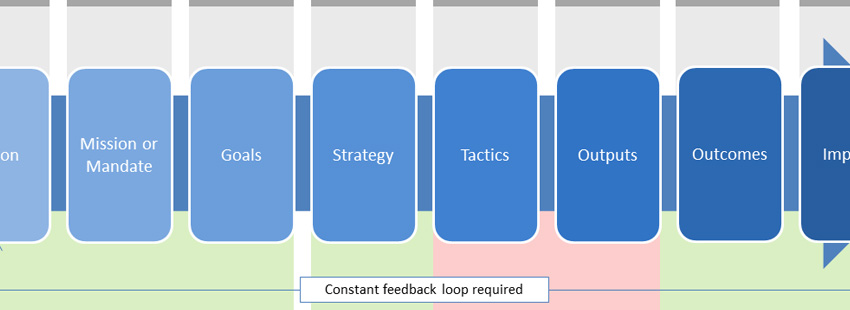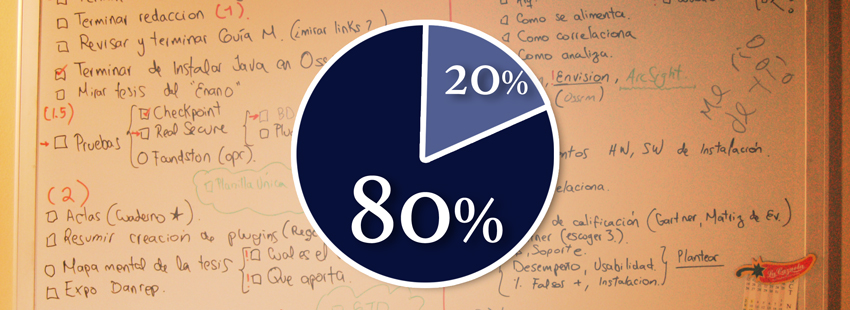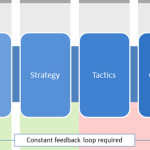It’s easy to think of communications as purely a supportive role. We’re not usually the ones charting the course for our organizations. We’re not driving the business. So it’s easy to understand how we can become quite reactive to the work that is requested of us. However, it is incumbent on us to constantly question the “why” of our work, however responsive we are to the “what” and the “how”, in order to be able to provide strategic guidance, and maximum value, to those we are supporting.
Read moreApply the Pareto principle to your to-do list for maximum success
by David Folkerson on July 1, 2015 , No commentsDo you use a to-do list? Good. Does it ever get shorter? If you’re like me – not really. My to-do list is long and it seems to get longer all the time. But I’ll come clean and tell you right now that, as important as productivity is, I’m never going to finish it. I’m not even going to try. Why? Because the effort just isn’t worth it. I look at my to-dos all the time, and every time I look at my list, I consider what my goals are, what the context is around me, and I start to assign priorities to my tasks. Many tasks never get done. They were born as a fleeting thought. Potentially good ideas that came about in relation to something else. The tasks took a little breath, survived long enough to make it onto my list, but things changed, projects moved on, now they’re tagged as “low priority”, and in a few months they’ll probably be deleted. To-dos can only survive in low-priority mode for so long before their sheer existence causes me more annoyance than their eventual potential is worth.
Read more9 tips for the shortest and most productive meetings possible
by David Folkerson on February 28, 2015 , No commentsI have a friend who told me he regularly has to sit through two-hour long weekly team meetings. I didn’t know whether to laugh or cry with him. Such a massive investment in time and money. Put your typical team of 10 into a boardroom for two hours, and that meeting has just cost the company about $1,000 in wages. Keep it up for a year, and the company is down about $50K. And that’s just one team. It is unlikely that this company generates sufficient return from these team pow-wows to merit such frivolousness with employee time. Conducting good meetings is an important skill. Here are some tips for keeping them as short and as productive as possible.
Read more



 Senior communicator | Team leader | Web and social media expert | Strategist.
I love making new professional acquaintances. Reach out if you want to talk communications, marketing, or ultimate frisbee.
Senior communicator | Team leader | Web and social media expert | Strategist.
I love making new professional acquaintances. Reach out if you want to talk communications, marketing, or ultimate frisbee.






Recent Comments